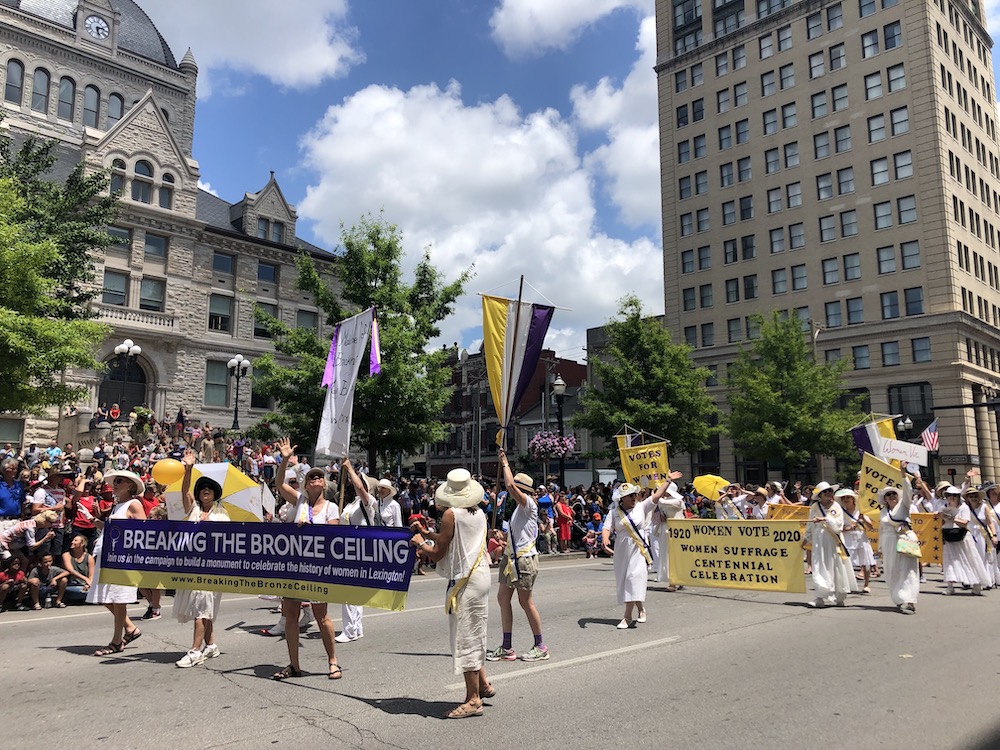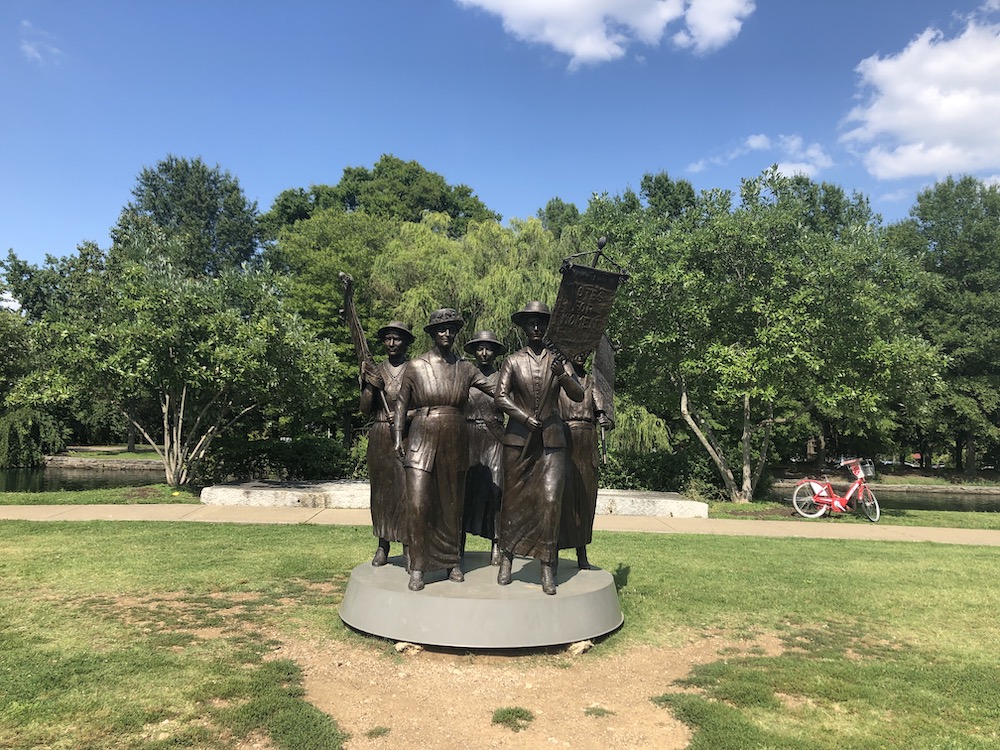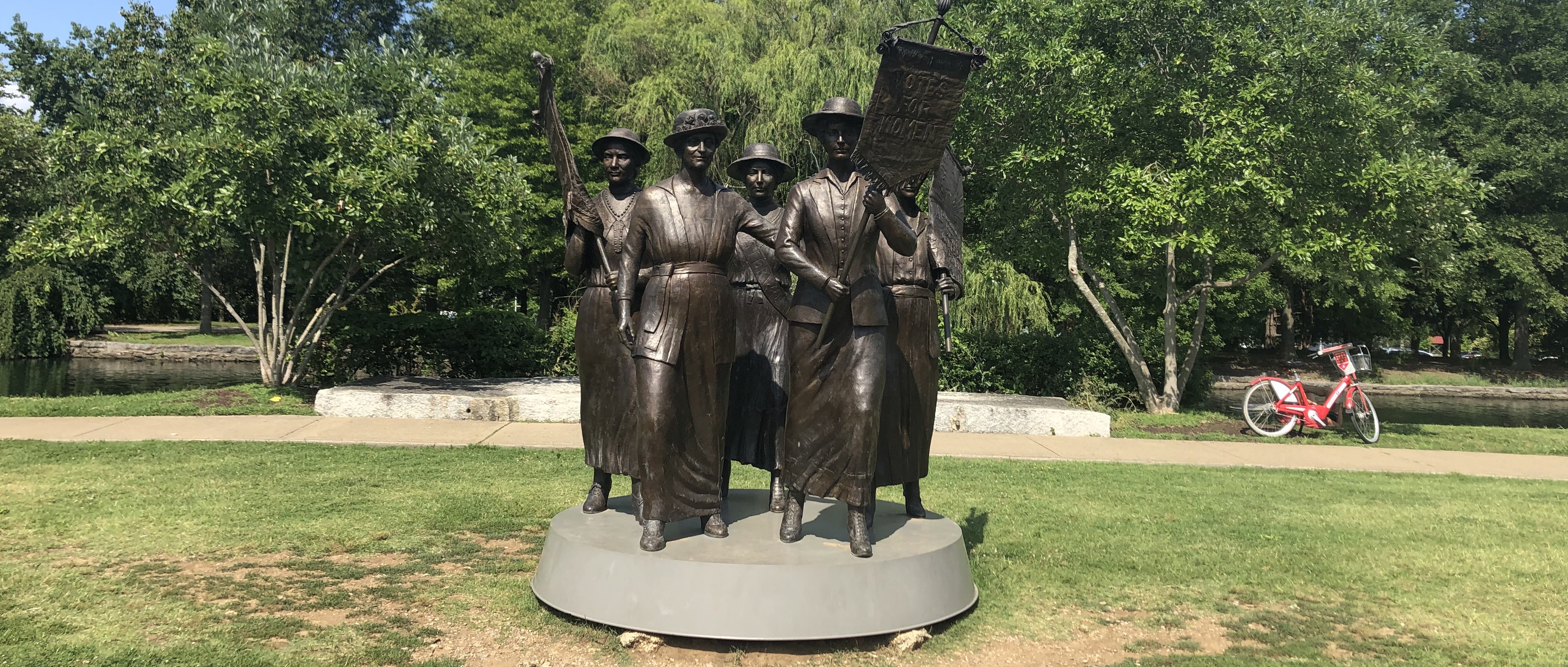During Lexington’s Fourth of July celebration this year, I was impressed by the “Breaking the Bronze Ceiling” group promoting more statues honoring the accomplishments of women. News of the removal from the courthouse lawn the two monuments honoring two Confederate men drew much attention and focus behind the meaning of monuments as well as their context.
Those same considerations help to remind us of the great disparity by gender in monuments which honor our historic leaders. According to breakingthebronzeceiling.org, only 7% of the 5,193 monuments in the United States presently recognize women.
Breaking the Glass Ceiling in Lexington, Kentucky

News has broken that a location has been selected for Lexington’s sculpture which will honor women who are as-of-yet-to-be-determined.
A Monument for Suffrage in Nashville, Tennessee

The monument in Nashville recognizes five important women who sought suffrage both in Tennessee as well as nationally. Anne Dallas Dudley of Nashville “was known for her persuasive eloquence.” Carrie Chapman Catt of New York “came to Tennessee to direct the pro-suffrage forces.” Sue Shelton White of Jackson was among “Tennessee’s most effective suffragists.” Abby Crawford Milton of Chattanooga led the movement for women’s rights in eastern Tennessee and was the first president of the Tennessee League of Women Voters. Finally, Nashville’s J. Frankie Pierce sought equal suffrage an d is also recognized for organizing “protests against the lack of restroom facilities for blacks in downtown Nashville.”
Nashville’s monument also has significant signage about the 19th Amendment and also identifies other “Tennessee Trailblazers.”
Suggestions for Recognition in Lexington
So who might appear on Lexington’s monument once it is constructed? There are many fine candidates to be recognized for their groundbreaking contributions. Laura Clay who was profiled in Lost Lexington certainly tops my list: a leading suffragist, her name was the first nominated at a major political party convention for President of the United States. Madeline McDowell Breckinridge strongly supported the 19th Amendment’s ratification and once told the Kentucky governor that “Kentucky women are not idiots—even though they are closely related to Kentucky men.” Dr. Mary Britton was the first female granted a license to practice medicine in Kentucky. Georgia Davis Powers was the first woman elected to the Kentucky State Senate and Martha Layne Collins was Kentucky’s first female governor. There are several contenders for the monument and there are more to be learned about at breakingthebronzeceiling.org!

